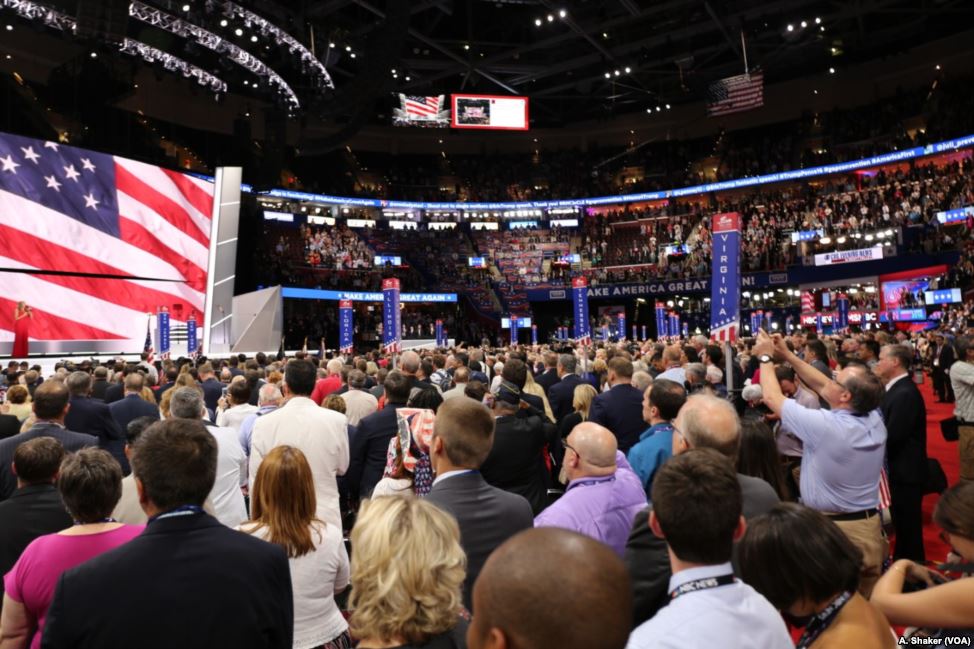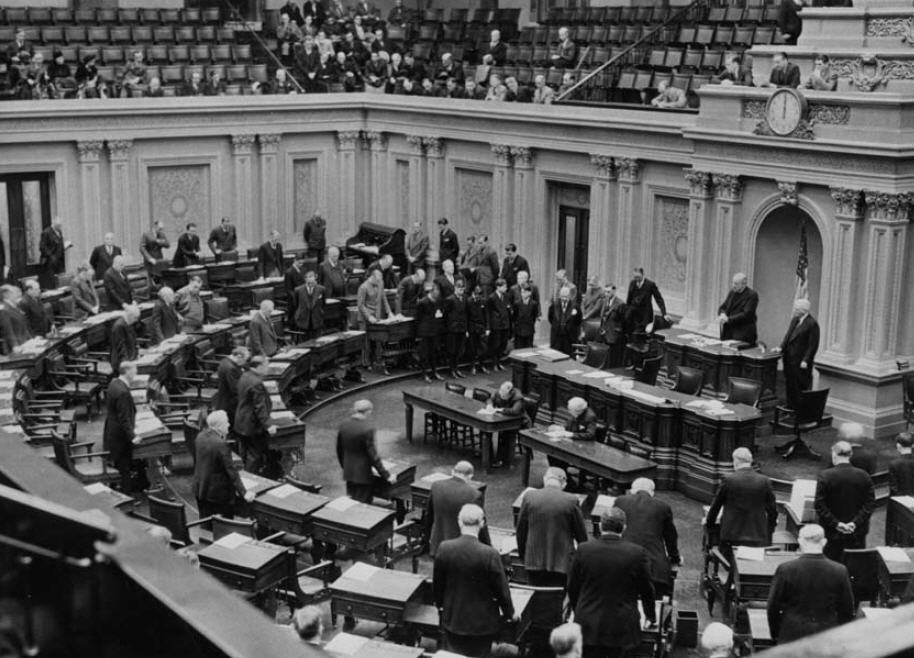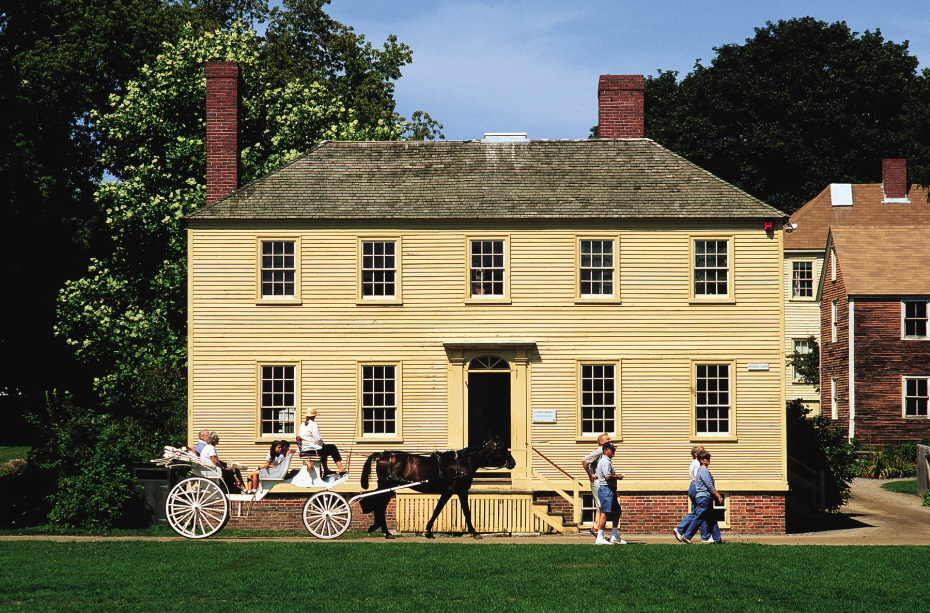|
Arthur B. Jenks
Arthur Byron Jenks (October 15, 1866 – December 14, 1947) was a U.S. Representative from New Hampshire. Born in West Dennis, Massachusetts, Jenks attended public schools. He was employed as a shoe worker in 1881. He engaged in the shoe manufacturing business at Manchester, New Hampshire from 1902 to 1930. He also became engaged in the banking business in 1917 in Manchester. He was an unsuccessful candidate for election in 1934 to the Seventy-fourth Congress and in 1936 to the next Congress. In the 1936 election, Jenks first received a plurality of 550 votes, seemingly winning the contest, but after a recount the race was tied. Both Jenks and his opponent Democrat Alphonse Roy appealed to the state ballot-law commission which considered more than 100 disputed ballots before declaring Roy the winner by 17 votes. Jenks brought forward 34 more ballots, which the commission included, making Jenks the winner. Jenks was certified the winner, but Roy contested the election at the ... [...More Info...] [...Related Items...] OR: [Wikipedia] [Google] [Baidu] |
Republican National Convention
The Republican National Convention (RNC) is a series of presidential nominating conventions held every four years since 1856 by the Republican Party in the United States. They are administered by the Republican National Committee. The goal of the Republican National Convention is to officially nominate and confirm a candidate for president and vice president, adopt a comprehensive party platform and unify the party, as well as publicize and launch the fall campaign. Delegates from all fifty U.S. states and from American dependencies and territories, including Puerto Rico and the Virgin Islands, attend the convention and cast their votes. Like the Democratic National Convention, the Republican National Convention marks the formal end of the primary election period and the start of the general election season. In 2020, all parties replaced the usual conventions with short online programs. History The Republican Party was formally organized on a national basis at a meeti ... [...More Info...] [...Related Items...] OR: [Wikipedia] [Google] [Baidu] |
Republican Party Members Of The United States House Of Representatives From New Hampshire
Republican can refer to: Political ideology * An advocate of a republic, a type of government that is not a monarchy or dictatorship, and is usually associated with the rule of law. ** Republicanism, the ideology in support of republics or against monarchy; the opposite of monarchism *** Republicanism in Australia *** Republicanism in Barbados ***Republicanism in Canada *** Republicanism in Ireland *** Republicanism in Morocco *** Republicanism in the Netherlands *** Republicanism in New Zealand ***Republicanism in Spain *** Republicanism in Sweden ***Republicanism in the United Kingdom *** Republicanism in the United States **Classical republicanism, republicanism as formulated in the Renaissance *A member of a Republican Party: ** Republican Party (other) **Republican Party (United States), one of the two main parties in the U.S. **Fianna Fáil, a conservative political party in Ireland **The Republicans (France), the main centre-right political party in France **The Re ... [...More Info...] [...Related Items...] OR: [Wikipedia] [Google] [Baidu] |
People From Dennis, Massachusetts
The term "the people" refers to the public or common mass of people of a polity. As such it is a concept of human rights law, international law as well as constitutional law, particularly used for claims of popular sovereignty. In contrast, a people is any plurality of persons considered as a whole. Used in politics and law, the term "a people" refers to the collective or community of an ethnic group or nation. Concepts Legal Chapter One, Article One of the Charter of the United Nations states that "peoples" have the right to self-determination. Though the mere status as peoples and the right to self-determination, as for example in the case of Indigenous peoples (''peoples'', as in all groups of indigenous people, not merely all indigenous persons as in ''indigenous people''), does not automatically provide for independent sovereignty and therefore secession. Indeed, judge Ivor Jennings identified the inherent problems in the right of "peoples" to self-determination, as i ... [...More Info...] [...Related Items...] OR: [Wikipedia] [Google] [Baidu] |
1947 Deaths
It was the first year of the Cold War, which would last until 1991, ending with the dissolution of the Soviet Union. Events January * January–February – Winter of 1946–47 in the United Kingdom: The worst snowfall in the country in the 20th century causes extensive disruption of travel. Given the low ratio of private vehicle ownership at the time, it is mainly remembered in terms of its effects on the railway network. * January 1 – The ''Canadian Citizenship Act, 1946, Canadian Citizenship Act'' comes into effect, providing a Canadian citizenship separate from British law. * January 4 – First issue of weekly magazine ''Der Spiegel'' published in Hanover, Germany, edited by Rudolf Augstein. * January 10 – The United Nations adopts a resolution to take control of the free city of Trieste. * January 15 – Elizabeth Short, an aspiring actress nicknamed the "Black Dahlia", is found brutally murdered in a vacant lot in Los Angeles; the mysterious case is never solv ... [...More Info...] [...Related Items...] OR: [Wikipedia] [Google] [Baidu] |
1866 Births
Events January * January 1 ** Fisk University, a historically black university, is established in Nashville, Tennessee. ** The last issue of the abolitionist magazine '' The Liberator'' is published. * January 6 – Ottoman troops clash with supporters of Maronite leader Youssef Bey Karam, at St. Doumit in Lebanon; the Ottomans are defeated. * January 12 ** The '' Royal Aeronautical Society'' is formed as ''The Aeronautical Society of Great Britain'' in London, the world's oldest such society. ** British auxiliary steamer sinks in a storm in the Bay of Biscay, on passage from the Thames to Australia, with the loss of 244 people, and only 19 survivors. * January 18 – Wesley College, Melbourne, is established. * January 26 – Volcanic eruption in the Santorini caldera begins. February * February 7 – Battle of Abtao: A Spanish naval squadron fights a combined Peruvian-Chilean fleet, at the island of Abtao, in the Chiloé Archipelago of southern Chile. * February 13 ... [...More Info...] [...Related Items...] OR: [Wikipedia] [Google] [Baidu] |
77th United States Congress
The 77th United States Congress was a meeting of the legislative branch of the United States federal government, composed of the United States Senate and the United States House of Representatives. It met in Washington, D.C., from January 3, 1941, to January 3, 1943, during the ninth and tenth years of Presidency of Franklin D. Roosevelt, Franklin D. Roosevelt's presidency. The apportionment of seats in the United States House of Representatives, House of Representatives was based on the 1930 United States census. Both chambers maintained a Democratic Party (United States), Democratic majority - with the Senate being a supermajority. With the reelection of U.S. President, President Franklin D. Roosevelt to a then record third term, the Democrats maintained an overall federal government government trifecta#United States, trifecta. This was the first Congress to have more than one Vice President of the United States, Senate president (John Nance Garner, John Garner and Henry A. Wa ... [...More Info...] [...Related Items...] OR: [Wikipedia] [Google] [Baidu] |
76th United States Congress
The 76th United States Congress was a meeting of the legislative branch of the United States federal government, composed of the United States Senate and the United States House of Representatives. It met in Washington, D.C., from January 3, 1939, to January 3, 1941, during the seventh and eighth years of Presidency of Franklin D. Roosevelt, Franklin D. Roosevelt's presidency. The apportionment of seats in the United States House of Representatives, House of Representatives was based on the 1930 United States census. Both chambers had a Democratic Party (United States), Democratic majority - holding a supermajority in the Senate, but a greatly reduced majority in the House, thus losing the supermajority there. With U.S. President, President FDR, Roosevelt, the Democrats maintained an overall federal government government trifecta#United States, trifecta. The 76th is also the most recent Congress to have held a third session. Major events * April 9, 1939: African-American s ... [...More Info...] [...Related Items...] OR: [Wikipedia] [Google] [Baidu] |
75th United States Congress
The 75th United States Congress was a meeting of the legislative branch of the United States federal government, composed of the United States Senate and the United States House of Representatives. It met in Washington, D.C., from January 3, 1937, to January 3, 1939, during the fifth and sixth years of Franklin D. Roosevelt's presidency. The apportionment of seats in the House of Representatives was based on the 1930 United States census. Both chambers had a Democratic supermajority, with the party increasing their majority in both the House and Senate, and with the reelection of President Roosevelt, maintained an overall federal government trifecta. This is the most recent Congress to feature a 3/4th majority in the House or Senate by either party. Major events * January 20, 1937: President Franklin D. Roosevelt begins his second term. * February 5, 1937: Roosevelt's court-packing plan proposed * March 26, 1937: William Henry Hastie becomes the first African-American ... [...More Info...] [...Related Items...] OR: [Wikipedia] [Google] [Baidu] |
74th United States Congress
The 74th United States Congress was a meeting of the legislative branch of the United States federal government, composed of the United States Senate and the United States House of Representatives. It met in Washington, D.C., from January 3, 1935, to January 3, 1937, during the third and fourth years of Franklin D. Roosevelt's presidency. The apportionment of seats in the House of Representatives was based on the 1930 United States census. The Democrats increased their majorities in both the House and Senate, resulting in a supermajority in both chambers, and along with President Franklin D. Roosevelt maintained an overall federal government trifecta. Major events * April 14, 1935: Dust Bowl: The great dust storm hit eastern New Mexico, Colorado, and western Oklahoma * May 6, 1935: Executive Order 7034 created the Works Progress Administration (WPA). * May 27, 1935: '' Schechter Poultry Corp. v. United States'': the U.S. Supreme Court declared the National Industrial Recov ... [...More Info...] [...Related Items...] OR: [Wikipedia] [Google] [Baidu] |
New Hampshire
New Hampshire ( ) is a U.S. state, state in the New England region of the Northeastern United States. It borders Massachusetts to the south, Vermont to the west, Maine and the Gulf of Maine to the east, and the Canadian province of Quebec to the north. Of the List of states and territories of the United States, 50 U.S. states, New Hampshire is the List of U.S. states and territories by area, seventh-smallest by land area and the List of U.S. states and territories by population, tenth-least populous, with a population of 1,377,529 residents as of the 2020 United States census, 2020 census. Concord, New Hampshire, Concord is the List of capitals in the United States, state capital and Manchester, New Hampshire, Manchester is the List of municipalities in New Hampshire, most populous city. New Hampshire's List of U.S. state mottos, motto, "Live Free or Die", reflects its role in the American Revolutionary War; its state nickname, nickname, "The Granite State", refers to its ext ... [...More Info...] [...Related Items...] OR: [Wikipedia] [Google] [Baidu] |
United States House Of Representatives
The United States House of Representatives is a chamber of the Bicameralism, bicameral United States Congress; it is the lower house, with the U.S. Senate being the upper house. Together, the House and Senate have the authority under Article One of the United States Constitution, Article One of the Constitution of the United States, U.S. Constitution to pass or defeat federal legislation, known as Bill (United States Congress), bills. Those that are also passed by the Senate are sent to President of the United States, the president for signature or veto. The House's exclusive powers include initiating all revenue bills, Impeachment in the United States, impeaching federal officers, and Contingent election, electing the president if no candidate receives a majority of votes in the United States Electoral College, Electoral College. Members of the House serve a Fixed-term election, fixed term of two years, with each seat up for election before the start of the next Congress. ... [...More Info...] [...Related Items...] OR: [Wikipedia] [Google] [Baidu] |







